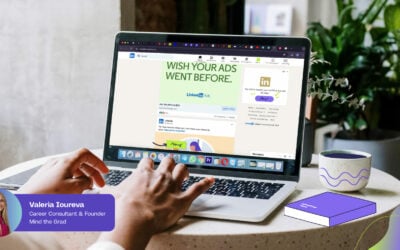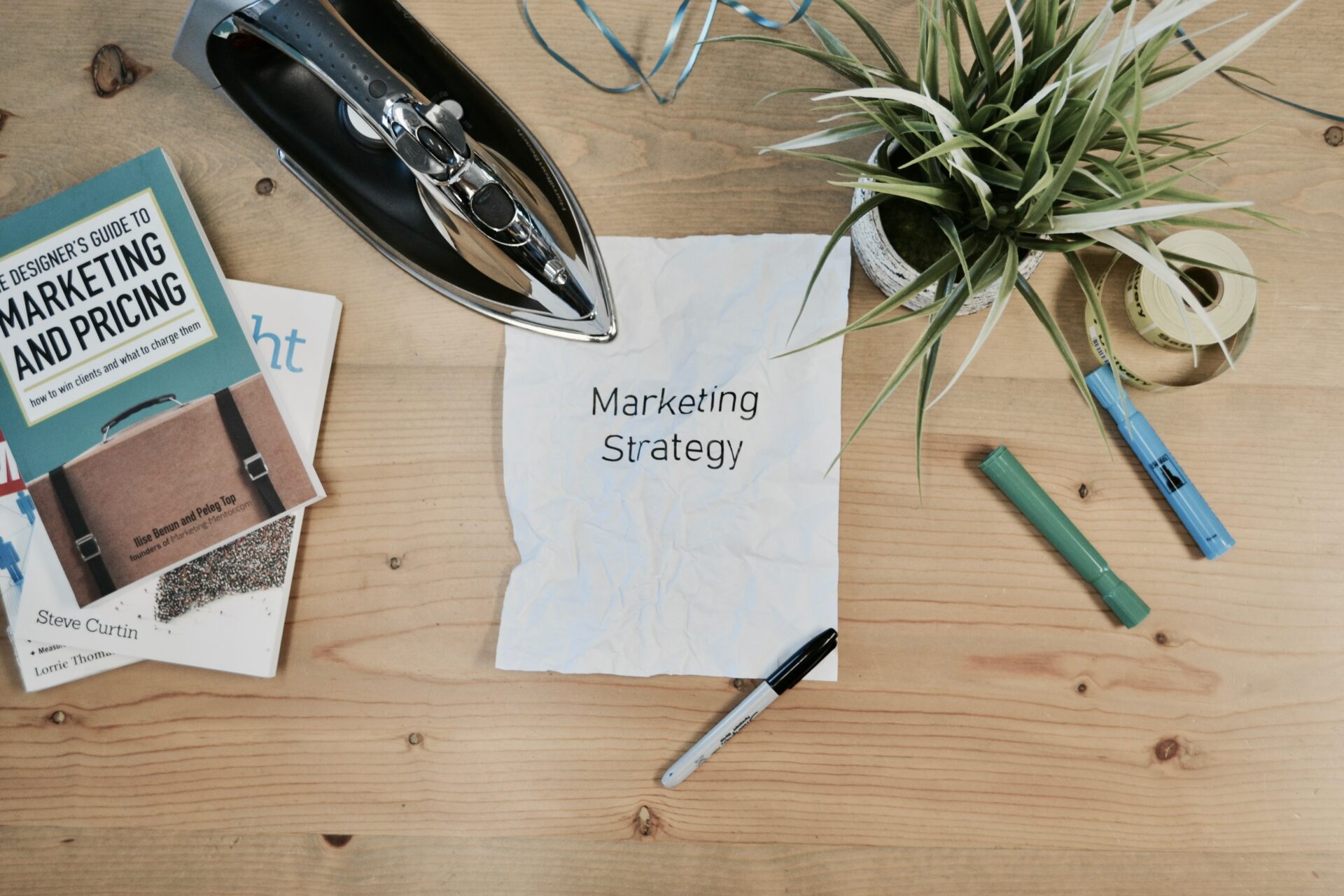
Marketing is one of the most diverse fields today — and to be a marketing professional requires a wealth of knowledge spanning multiple disciplines. For these reasons, those looking to build a career in marketing may find it difficult to navigate; and it can get overwhelming for students, graduates and interns who are just starting out in their careers.
Sharing their own journeys and experiences with us Eric Moeller, Director of Product Marketing at Relex Solutions and Chloe Simms, Marketing Manager at Ripple give us their insights on how you can better navigate the marketing sphere and turn your internship into a full-time job.
Let’s begin … at the beginning!
How to start in marketing
The hardest part might just be knowing what you want to do. We already spoke about how diverse a field it is but it gets seriously expansive as you dive deeper. Are you more of a digital person or do traditional forms of marketing still intrigue you? Do you want to be a growth marketer, or would you prefer graphic design?
Are you more into the tech side or creative content side? Is social media your only love? If so, which platform would you like to specialise in? (Also, let’s not forget about SEO.)
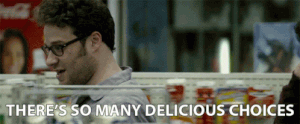
The thing is, you don’t need to know exactly what your career should look like in 10 years right now. You just need a general direction. For example, if you choose to pursue social media marketing, the next steps you take might be different to an SEO specialist (even if there’s some overlap, which is unavoidable).
Additionally, with a new social media platform popping up every now and then, we can be pretty certain there’s going to be plenty of room for skill growth and learning—but this is true of all marketing roles.
They are designed to keep you on your toes—because you are tasked with understanding the intentions and needs of thousands of people and communicating with them in a way that benefits both the audience/consumers and the company/brand. You have to do this while knowing yourself and your own abilities and limitations.
But here’s the truth about marketing as a career
Marketing is only ever-evolving because marketers are flexible, creative, knowledgeable and well-versed with consumer behaviour! For a passionate marketer entering the field, too many options isn’t a downside, it’s the biggest benefit. Usually, we’re a pretty diverse group of people—often coming from the most random backgrounds. (Almost makes you wonder if ‘all paths lead to marketing’ is a legitimate adage.)
In Eric’s case, he experienced quite a journey. “I’ve worked in tech basically my entire career. I’ve mostly worked for software companies. I started working for my first software company in the late 90s. I also worked in the early two thousands for a handful of different hardware companies.” But would you have guessed that he started out as an English teacher in South Korea?
On how that happened, he said: “I’ve never really been one to plan. I think I just kind of fall into things, it seems. But what happened was that I was studying at a university in Ontario, in a city called London, Ontario. (Canada has a lot of cities named after British ones.) But I didn’t really know what I wanted to do. I knew I wanted to do more university at some point, but I thought maybe I should take a gap year.
“At the time, there were a lot of English teacher jobs in Japan and Korea. I thought, well, that sounds like a chance to do some travelling, experience a different culture and get paid to do it. I thought, why not do that? It was definitely the first time I’d ever encountered culture shock. I didn’t speak Korean at the time. didn’t know anything about the culture, the history, the food. The first three or four months were definitely very challenging.”
While it’s true that Eric initially struggled with culture shock, these kinds of challenging experiences can significantly contribute to your personal and professional growth—all because marketing hinges heavily on empathy and a person’s ability to empathise.
“If we’re trying to sell something or market something to another person, we have to know what they care about, what’s important to them, and what the challenges they have. I think some of those other life experiences that you have doing different things … can be a way to open up a door to empathy and see things from a very different perspective,” he said.
Once Eric started appreciating the food, becoming genuinely curious about their history and culture, and making some friends, he found himself slowly getting into the swing of things in Korea—but his journey was about to take a vastly different trajectory.
“Suddenly, it felt very comfortable and I had contemplated actually staying a second year, but I was accepted into an MBA program back in Canada, so I thought, ‘No, I’ll just stop this adventure now and go back’,” he explained. It was a friend of his who suggested he do his MBA and that there were tons of tech jobs popping up back then—it would be ideal to secure one.
For Chloe, on the other hand, it was her passion for retail that turned her towards the marketing path but the latter didn’t exactly leave the best impression on her when she was younger.
Your passion could become your career
“I think marketing has an influence on every single aspect of your commercial experience. It always made me laugh. I used to shout at my mum for getting tricked into the tactics of marketing, like the point of purchase displays. I was like, ‘No, they’re sucking you in.’ I think the psychological aspect of retail was always more interesting to me than anything else as well—just the layout of the stores, the displays,” shared Chloe, reflecting on her teen years.
Today, Chloe has a different view of marketing. While she acknowledged that she once held a cynical view of marketing, she believes that in today’s market, consumers have become more informed and empowered. “In this day and age, the consumer has become a lot smarter. We have so many options and choices. I think that’s really important and that it gives the consumer a bit more authority in terms of what they’re purchasing,” she added.
Chloe went on to highlight that while there is fierce competition among brands, marketing has shifted to become more consumer-driven. She believes marketers no longer hold all the power, given the multitude of choices consumers have. Chloe sees the challenge for marketers as simplifying these choices and, while acknowledging the need for profit, making sustainable efforts to adapt to evolving customer needs.
Plus, having done a fashion marketing degree, she knew she knew that retail would eventually lure her back in!
“I’ve done a lot of tech and gardening leisure buying after my uni experience, but getting into retail again has been quite exciting. Ripple is an end-to-end retail design agency. We have our own in-house manufacturing shop as well. I’m learning all about things like MDF wood panels and laser cutting machines, which I never thought I would, but I’m here, I’m doing it.”
And that’s the brilliant thing about marketing: the more diverse things you learn, the better you get at your job! Sounds pretty fun and easy, doesn’t it?
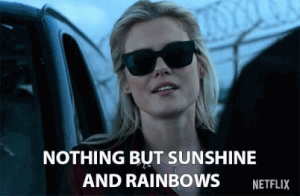
But it’s not always easy!
Like any other career path, marketing is laden with challenges of its own, including but not limited to the following:
- Imposter syndrome: Many marketing interns, like professionals at any career stage, might struggle with imposter syndrome. They may question their abilities and whether they truly belong in the field—which is far too common with creatives.
- Navigating diverse disciplines: Marketing encompasses a wide range of disciplines, from social media marketing to content creation and analytics. It’s challenging to navigate this diversity and decide which area to specialise in.
- Technical skills: Developing and honing new technical skills, such as using marketing tools and software, can be a bit challenging at first. There are so many different tools for different needs, and the only way to know for sure is to try them out. There’s many that are pretty useful, such as Semrush, Apollo, Google Analytics, etc.
- Networking: Building a professional network can be challenging for those who are just starting in their careers but establishing connections within the marketing industry is crucial for long-term success.
In addition to that, those still early in their careers face additional pressures to prove themselves and their worth—all while competing with hundreds (even thousands) of others in a similar situation.
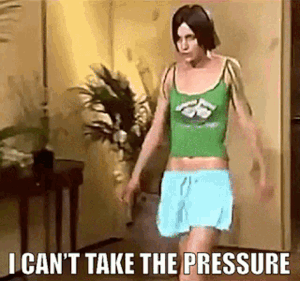
But Chloe has a few wise words of advice on why the fear and pressure aren’t really helping your career: “In my early career, it was always quite overwhelming to hear what other people were doing. I’ve always been a bit of an overachiever … I’ve learned how to manage it and the advice that I would give is ‘the loudest lion doesn’t always catch the most prey.’
“Yes, you might be looking on LinkedIn and people are doing XYZ, but sometimes it’s just a token of what they’re doing … To people taking on internships now, try your best not to compare. I know it’s easier said than done, but it’s so important to look after yourself and focus on your own path.”
Getting a full-time marketing role
We can’t stop recommending thorough preparation prior to your job hunt, interview, or even the first day of your internship/job. Securing a full-time marketing role often begins with successful interviews and could definitely begin with a successful internship—and a bit of preparation won’t hurt either way! Based on Chloe and Eric’s recommendations, here’s what they recommend to impress your potential employer:
- Start by researching the company. Understanding its target audience, and grasping its branding and potential developments are vital steps.
- Research deeper into the role itself. Look out for the keywords the company uses and see if this aligns with your career aspirations. In addition, reaching out to professionals on LinkedIn for insights can provide you with a valuable edge.
- Prepare for the interview itself by practising answering interview questions so you get into the flow of telling your story well. Talking about your quantifiable results and tangible examples of your skills helps! (Don’t write out your answers word for word—it’s going to sound unnatural and if you forget something, it’ll be a lot harder to work around.)
- Approach interviews as two-way opportunities. You’re getting to know the company as much as it’s getting to know you. (So, don’t be afraid to showcase your enthusiasm and passion for the role and field!)
As Chloe shared, “I think don’t be scared if you don’t have enough practical experience. I think you can’t teach passion, but you know if you go into that interview show your enthusiasm, show that you really are enthusiastic about the job.”
Once you’ve secured an internship, congratulations but if you’re vying for a full-time role, your journey doesn’t end there. Internships are usually only short-term, lasting anywhere from a couple of weeks to three months, six, or more. (Plus the roles of interns vary vastly!)
Sometimes, the job offer may not come through but there could be a dozen different factors for this!
As Eric said, “I think, if I was talking to someone and they said, ‘I’m in this internship and I haven’t been able to convert this yet into a full-time role’, I’d encourage them to ask themselves some tough questions. Well, why is that? Does the company not have a budget? Are they not convinced that you’d be a good fit long-term? Why is it that this hasn’t yet been converted?”
He added, “If you think about it from a company’s perspective. Why would they want to convert you from an intern to a full-time employee? It’s to really lock you in and know that they have you because they value you. If they’re not doing that, they may not value you.”
But this could also be due to the fact that you’re not showing enough of what you’re capable of doing for them to have noticed. So, how do you convince your supervisors/employers that you’re worthy of a full-time position?
“I would offer to go above and beyond, do things without being asked to show that value. If, when you show that value, it’s appreciated and valued by the organisation, then great! You start to move things more in your favour,” Eric explained further before adding, “ If they still don’t value it, maybe it’s not the right environment and it might be worth considering looking at another organisation.”
Eric further recommends demonstrating your value by solving problems proactively and aligning your tasks with the company’s long-term objectives. Additionally, cultivating soft skills will set you apart as an intern, providing a solid foundation for your marketing career. And don’t forget to leverage those networking opportunities and seeking mentorship are also crucial steps in securing a full-time role!
Final thoughts
When you embark on your career, you’ll inevitably encounter various challenges. These could range from adapting to the fast-paced marketing environment to juggling multiple tasks and priorities or learning a whole new social media platform in a day. Yet Chloe and Eric’s insights provide us with a general roadmap to navigate the labyrinthine world of marketing. Their experiences underscore the importance of adaptability, foundational knowledge, self-care, and authenticity in this dynamic field.
A good marketer yearns for diverse experiences, has solid problem-solving skills and empathy. Furthermore, developing soft skills such as time management and effective communication will help interns stand out in the competitive field. And as Chloe reminded us, your marketing journey is unique, and success awaits those who stay true to themselves while conquering the ever-evolving marketing landscape.


